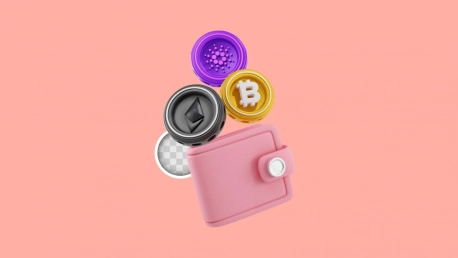In the rapidly expanding world of cryptocurrencies, possessing a reliable wallet is indispensable for safeguarding your digital assets. Yet, the task of choosing the ideal wallet can be daunting, with security and convenience often at odds with each other. On one hand, you seek impenetrable protection against potential breaches; on the other, you require ease of access for regular transactions. This delicate balance compels crypto owners to prioritize their needs and make crucial decisions that cater to their unique requirements.
Understanding Wallet Types
Cryptocurrency wallets come in various forms, each with its unique features and levels of security. Hot wallets are online tools that provide quick and easy access to your funds, making them suitable for traders and active users. Despite their utility, their constant internet connectivity renders them more vulnerable to cyber-attacks. Cold wallets, conversely, offer robust security by storing assets offline, greatly minimizing the risks of hacking and unauthorized access. While they excel in protection, their physical nature can make frequent transactions cumbersome.Each type speaks to different user behaviors. For those transacting daily, hot wallets are often the preferred choice due to their convenience. Cold wallets are the go-to for investors looking to hold their assets over an extended period, prioritizing security over immediate availability. Users need to assess their habits and risk tolerance when choosing between hot and cold wallets. Do the flexibility and quick access of a hot wallet align with your active trading needs, or does the fortification of a cold wallet better suit your long-holding strategy?
Comparing Custodial and Noncustodial Solutions
The dichotomy between custodial and noncustodial wallets presents another layer of decision-making for cryptocurrency users. Custodial wallets are akin to traditional banking, where a third-party service holds and manages your private keys. This arrangement may offer a user-friendly experience and recovery options in case of lost access but ultimately means surrendering control over your assets to another entity, which could be a potential point of failure.Noncustodial wallets empower users with full control of their private keys and, consequently, their funds. The responsibility of securing the wallet falls entirely on the user, which eliminates the dependency on third parties but also requires a more hands-on approach to security. Educating oneself on best practices for private key management and backup procedures is critical when opting for a noncustodial wallet. The choice here revolves around trust and responsibility. Are you more comfortable entrusting a company with safeguarding your assets, or do you prefer taking the helm and managing your security independently?
Balancing Your Needs
In the dynamic realm of cryptocurrency, a dependable wallet is essential for protecting your digital currencies. Choosing the right wallet can be overwhelming as security must be weighed against convenience. A secure wallet is vital to guard against hacks, but it also needs to be user-friendly for frequent transactions. Users must assess their priorities, deciding between stringent security measures and the ease of access. This balance is critical as it informs the selection of a wallet that aligns with individual needs. Whether prioritizing impenetrable security or seamless usability, the decision must accommodate personal requirements to ensure the safety and accessibility of one’s crypto assets. With the right wallet, users can confidently manage their investments in the fast-paced crypto market.









